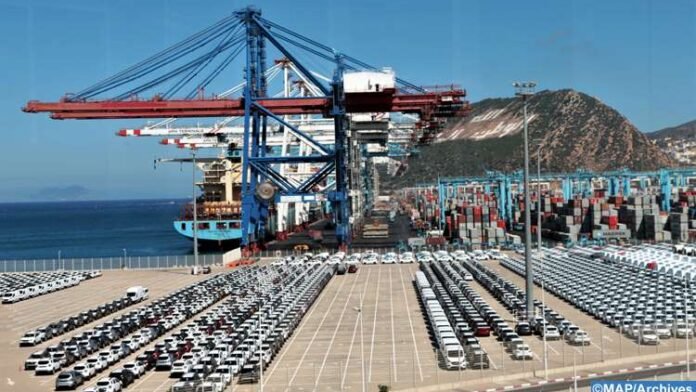The press and social networks highlight, every day, the dissatisfaction of a large part of Moroccan society. These people refuse the recent increases in the prices of the products necessary for the dignity of their lives and declare that their salaries are no longer sufficient.
The causes of this problem are obvious because everyone is aware of the economic repercussions of the war led by Russia and the recent anger of the Chinese dragon concerning the problem of Taiwan. These persistent global crises have caused a surge in the price of hydrocarbons on a global scale, which has influenced the production and transport costs of all our consumer products. In addition, India has declared that the export of its wheat has stopped due to lack of production and the world still doubts Ukraine’s ability to export all its wheat to countries that need it, in particular Morocco, which is among the countries most affected by drought.
Indeed, it is a calamity that strikes the whole world and things would have been worse if Morocco was not part of the movement of non-aligned countries like the majority of African countries. The Moroccan people and its wise Commandery are aware of this and know that Morocco has nothing to gain from these conflicts between powers which have never demonstrated sufficiently absolute and transparent support within the framework of the United Nations concerning sovereignty over the Sahara. All Moroccans are aware that these great powers preferred to see Morocco in continuous quarrel in its region instead of using the powerful right of Veto of the Security Council of the United Nations to abolish definitively the political problems of their so-called friends in the Maghreb. The other African peoples also know that their poor compatriots are dying every day from civil wars and famine without the real and effective help of the great world powers. Morocco has remained so far a suspicious country, independent and sovereign of its political and economic decisions while being able to effectively engage its troops with the UN in Africa in many impartial peacekeeping operations. However, everyone speaks today of the military collaboration between Morocco and the United States in comparison with the growing military collaboration of Algeria with Russia which begins to position itself today even in Mali. South Africa also does not hide its great economic collaboration with the Russians within the framework of the BRICS and this, despite the punishments inflicted by world powers on the reincarnation of the USSR. Does this then mark the near end of the organization of the non-aligned?
The African citizen is always vigilant in the face of the malicious intentions of other countries reputed to be “more civilized” which seem to want to share once again the poor regions of the world. Moroccans and Africans in general face a malicious media seduction that risks transforming their countries into swamps annexed to other swamps caused by the selfishness of world powers. Is France, which dared to withdraw from NATO, capable today of playing a new acceptable role which respects the sovereignty of Africa while overcoming the weaknesses of the non-aligned, the majority of whom are still struggling to pull themselves together? humiliating periods of protectorate?
Since Morocco is doing everything to impose its sovereignty at all levels and its strong personality even from an economic point of view, the legitimate question that every Moroccan asks is: why not increase wages? Every simple citizen wants more money notes to be printed in his country to relieve the pockets of those who have difficulty surviving this crisis. Well, the normal answer to this question that everyone hates is: “fears of great inflation”. Indeed, producing more wages thanks to more printed money will only have a short-lived effect on the purchasing power of the citizen since the products to be purchased will systematically increase in price after the rise in wages. The result will then be a Moroccan Dirham which is worth less nationally and also globally. Morocco will then risk suffering more economic problems and especially a possible inability to pay its external debts.
Consequently, this risks further ruining Moroccan citizens since the State will be obliged in this case to take more severe economic decisions which will directly affect the purchasing power of Moroccans. Without the wisdom and rationalism of “Bank Al-Maghrib”, Morocco could then risk the total collapse of its economy as was the case in Zimbabwe with the hyperinflation of 2008 and the rise in prices of 100% per day . The Zimbabwe crisis proved to all of Africa that global banks rarely show mercy to poor African people.
Moroccan and African citizens in general must then innovate ingenious solutions to enhance their available resources and create new “effective” wealth instead of reproaching their governments for not injecting millions of “fictitious” dollars into the fragile economies of their countries. country. All the press speaks today of an inflation of the American economy not seen for four decades. European stock markets are also in continuous decline since they are closely dependent on the American stock market and since inflation is soaring, even in Europe.
Unfortunately, the emergence of African countries has not yet succeeded since the African citizen still suffers from an insufficient standard of living. In this global crisis, the citizen must then demonstrate more fraternity towards his compatriots in difficulty and show more endurance by adapting his consumption habits to the current global circumstances.
By Akram Louiz: Author, Poet, Merchant Navy Lieutenant First Class
We wish to thank the writer of this short article for this outstanding web content
Morocco as an African example in the face of current political and economic crises
Take a look at our social media profiles and other related pageshttps://nimblespirit.com/related-pages/

